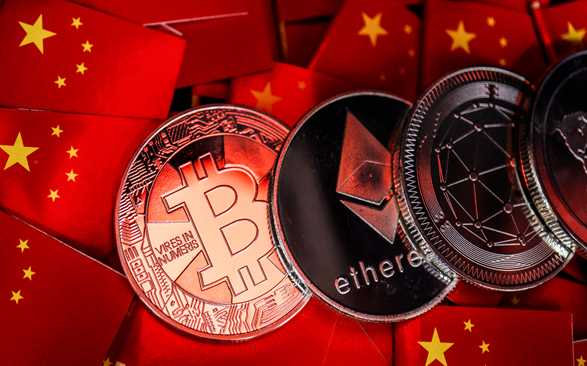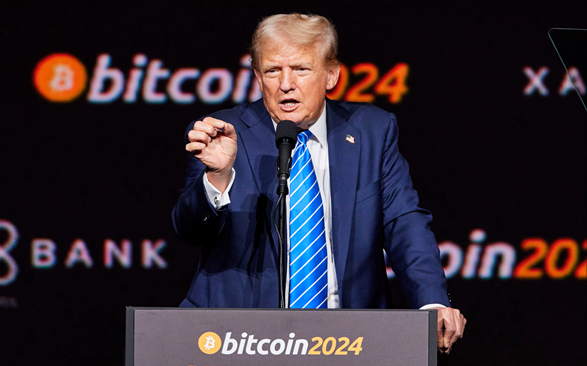by Jude Ayua
China’s State Administration of Foreign Exchange (SAFE) has issued new rules requiring banks to identify and report “risky foreign exchange trading behaviours,” including those linked to cryptocurrencies. The rules classify the purchase of cryptocurrencies with Chinese yuan and conversion of crypto into yuan as “cross-border financial activities involving cryptocurrencies.” Other restrictions are underground banking, cross-border gambling, and other illegal cross-border financial activities.
This new restriction adds to China’s series of regulations against cryptocurrency activities. The country views digital assets like bitcoin (BTC) as a potential threat to the nation’s financial stability. Since 2017, China has cracked down on cryptocurrency activities, banning initial coin offerings and shutting down crypto exchanges. The crackdown intensified in 2021 with a prohibition on bitcoin mining and a declaration making all crypto-related businesses illegal.
Read also: Huobi Global is moving out of China due to crypto clampdown.
Despite its anti-crypto stance, China is still the second-largest government holder of bitcoin, with over 190,000 BTC obtained through seizures linked to illegal financial activities. For a country that is working toward bypassing forex sanctions and ditching the U.S. Dollar through crypto, this new restriction complicates those efforts. It also contradicts recent developments which hinted at regulatory flexibility toward cryptocurrencies.
In November 2024, a Shanghai court ruled that personal ownership of crypto assets is not against Chinese law. However, while the court clarified the status of cryptocurrencies as not illegal, only when they are treated as commodities and not as currencies or business tools. This clarification provides limited legal protection for crypto holders on one hand, but on the other hand upholds the ban on the use of digital assets as financial instruments.
Commenting on the development, Liu Zhengyao, a lawyer at ZhiHeng law firm, said, “The new rules will provide another legal basis for punishing cryptocurrency trading. It can be foreseen that mainland China’s regulatory attitude towards cryptocurrencies will continue to tighten in the future.” Liu further stated that the new rules will make it “increasingly difficult in the future to evade the country’s forex regulations through crypto.”
China acknowledges Hong Kong’s regulatory efforts
Even as mainland China maintains its anti-crypto stance, it has acknowledged Hong Kong’s progress in cryptocurrency compliance. The People’s Bank of China recently published the China Financial Stability Report (2024). The report included discussion on global regulatory developments for cryptocurrencies in which it mentioned Hong Kong.
Hong Kong is actively advancing its approach to managing crypto assets licenses. The region categorizes virtual assets into securitized financial assets and non-securitized financial assets. It employs a unique “dual license” system for virtual asset trading platform operators. Under its regulatory framework, “security tokens” fall under the regulatory and licensing regime of the Securities and Futures Ordinance, while “non-security tokens” are regulated through the AMLO (Anti-Money Laundering Ordinance) framework. Businesses engaged in virtual asset activities must secure operating licenses from the appropriate regulatory authorities before commencing operations.
Read also: China launching Blockchain Innovation Center: any prospects for cryptocurrency?
Implications on long-term crypto adoption
China’s new restrictions on cryptocurrency transactions implies continued limitation of long-term adoption of digital assets in the country. It creates a climate of regulatory uncertainty and discourages innovation in the financial sector. While the measures aim to prevent illicit activities and enhance financial stability, the continuous tightening of crypto policies may drive legitimate blockchain projects and financial innovation to more crypto-friendly regions like Hong Kong.
China should consider a regulatory approach that will balance risk management with technological advancement. Such an approach should carefully consider the complexities and differences within the cryptocurrency space rather than imposing blanket bans. It would distinguish between various types of digital assets and their use cases, allowing legitimate innovation and investment while still enforcing safeguards against financial crimes and instability.
The country could adopt Hong Kong’s approach, which separates security and non-security tokens while allowing compliant businesses to operate under clear guidelines. This way, it would encourage responsible crypto use while protecting financial stability.
Read also: Hong Kong’s SFC approves four crypto exchanges.
Jude Ayua is a policy analyst at CAB. A lawyer, Jude is an associate at Infusion Lawyers where he is a member of the Blockchain & Virtual Assets Group. He is also a member of the Policy & Regulations Committee of the Stakeholders in Blockchain Technology Association of Nigeria (SiBAN). Jude reports and writes on crypto policy and regulations. jude@infusionlawyers.com
Discover more from Crypto Asset Buyer
Subscribe to get the latest posts sent to your email.




